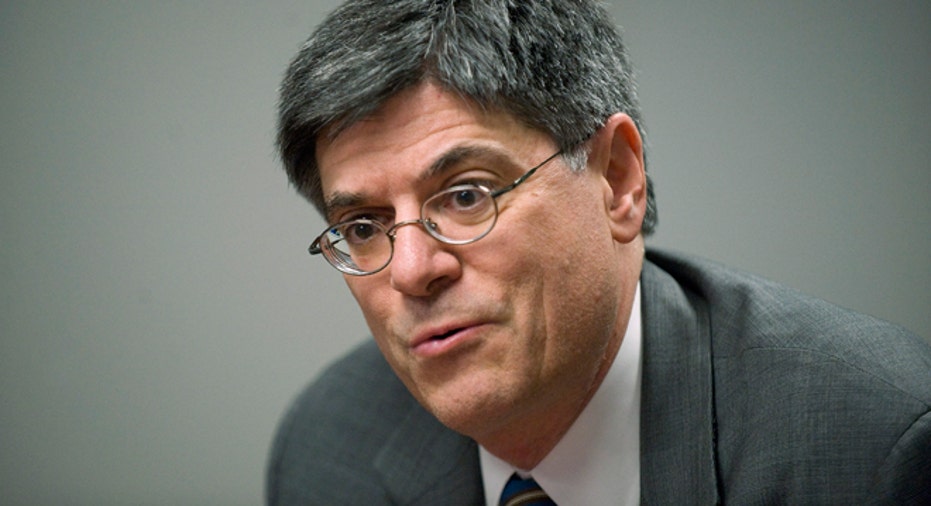Obama's Treasury Pick Elevates Budget Battles Over Crisis Management

By tapping Tim Geithner for his most important Cabinet position in the scary days of 2009, President Obama signaled the Treasury Department’s immediate focus on crisis management and a need to soothe jittery investors.
With Geithner on his way out after four stressful years, Obama now plans to nominate White House Chief of Staff Jack Lew as his next Treasury secretary. This critical appointment would arm the Treasury Department with a seasoned veteran of Washington’s past budget squabbles and underscores the administration’s attention on the looming battles ahead.
However, Lew’s scant experience with the inner workings of the financial markets or the international banking scene, especially compared with Geithner’s, leaves some wondering if the lessons of 2008 have already been forgotten.
“There will be a crisis. We don’t know the day or the catalyst but I don’t think it takes any great leap of faith to predict an international banking crisis in the next four years. He seems ill prepared to handle that," said Jim Rickards, senior managing director at Tangent Capital and veteran of the Long-Term Capital Management Crisis in 1998.
Washington insiders believed Lew was the likely pick all along, especially given his cozy relationship with Obama and lengthy history of working with (and sometimes against) Congress on tough budgetary issues.
“Jack Lew has been at the President’s side for the past two-plus years dealing with biggest problems facing the country -- fiscal issues coursing through Washington: fiscal cliff, debt ceiling; Budget Control Act,” a source familiar with the process told FOX News, adding that Lew “would be able to hit the ground running.”
All Eyes on D.C., For Now
The expected appointment highlights how the focus on Wall Street and in Washington has shifted in recent years from global financial scares to cleaning up the federal government’s own fiscal house, a politically-fraught process Lew has firsthand experience with.
“Obama obviously recognizes he’s going to have a lot more battles with Congress over budgetary matters, likely for the rest of his presidency. For that reason Lew is a safe pick. He’s been doing this for a long time,” said Dean Baker, co-director of the left-leaning Center for Economic Policy and Research, who added that he worries Lew won’t do enough to fix the economy.
Lew, 57, has two stints as director of the Office of Management and Budget under his belt, with the latest occurring during the tense days of the summer of 2011 when Congress and the White House went to the brink over raising the debt ceiling.
The debt ceiling, which now stands at $16.4 trillion, will be front and center in the coming months as Republicans are likely to use it as a way to force the administration to accept tough spending cuts. The last round of discussions on this delicate topic led to an unprecedented downgrade of the U.S. credit rating and prompted fears of a default.
“My impression is that Jack Lew has very good management skills which will help in the debt limit negotiations. He is also not disliked among most Republicans, which is a necessary condition to move forward,” Cam Harvey, a finance professor at Duke University, wrote in an email.
Additionally, the next Treasury secretary will have to spearhead talks on long-term debt reduction as well as mandated spending cuts set for March that were delayed by the year-end agreement on the fiscal cliff.
Is Lew Ready for a Banking Crisis?
While Lew may be a fixture in Washington and did serve as an executive at Citigroup (NYSE:C), he doesn’t have the experience dealing with complex financial crises that Geithner or his predecessor, former Goldman Sachs (NYSE:GS) CEO Hank Paulson, had when they were nominated to lead Treasury.
This lack of knowledge of the inner workings of the financial system is crucial given the fact that the Treasury secretary chairs the Financial Stability Oversight Council and is looked at to spearhead global responses in times of crisis.
“I think this is a very deficient and even dangerous appointment,” said Rickards, who describes himself as a "severe critic" of Geithner's. "You can disagree with [Geithner's] policies but there’s no question he knows his way around the international banking system, whereas Lew doesn’t."
If approved by the Senate, Lew could very well have to grapple with more trouble in Europe, which only recently has seemed to have gotten its years-long sovereign debt crisis to die down.
'Status Quo' Pick
With the markets still in free fall and Wall Street shell-shocked, Obama soothed investors in 2008 by signaling he would pick Geithner as his first Treasury secretary. While Geithner has worked solely in the public sector, he had enormous hands-on experience dealing with financial crises, especially as president of the New York Fed.
If Obama chose to go this route for his second term, he could have given serious thought to Larry Fink, the CEO of money-management behemoth BlackRock (NYSE:BLK), who FOX Business’s Charlie Gasparino reported was interested in the Treasury job.
There are a number of other financial-services veterans and Obama supporters who could have been looked at, including Evercore Partners (NYSE:EVR) Chairman Roger Altman and former UBS (NYSE:UBS) exec Robert Wolf.
From an economic standpoint, it’s not clear whether Lew will bring anything new to the table to promote stronger growth and lower unemployment.
“Lew seems like a status quo guy and I think the status quo is really bad,” said Baker, pointing to projections that the U.S. won’t return to full employment until around 2020. “To break out of that, you have to think of some new and different policies. I really don’t see him doing that.”



















